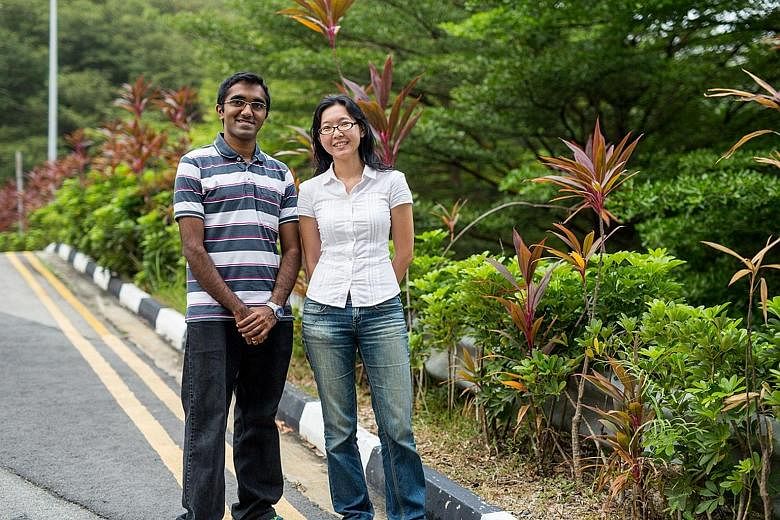Scientists here have found an eco-friendly way to convert plastic waste into carbon nanotubes - tiny cylinders of carbon atoms.
With this innovation by technology company BlueRen, more plastic waste can be recycled and the use of cement to make concrete reduced, as the carbon material can be used as an additive in concrete instead.
In 2014, for example, 869,000 tonnes of plastic waste was generated, but just 9 per cent was recycled - a proportion roughly unchanged since 2001.
Carbon nanotubes have many uses as they are light, strong and can conduct electricity well. They are 10,000 times thinner than human hair, but can be 100 times stronger than steel.
They are widely used in batteries and electronics, and can also be used as additives to enhance the strength of concrete.
But their use has been limited partly because most processes of recycling plastic into carbon nanotubes - first made possible in 2009 - are costly and produce toxic gases.
BlueRen's technology converts plastics into hydrocarbon gases, which are then passed through different chambers such that carbon nanotubes can be formed from these gases.
A key difference in its recycling process is that BlueRen uses a different mineral as the catalyst, one that is more environment-friendly.
Co-founder Wong Chui Ling, 34, a research scientist at Nanyang Technological University (NTU) said: "There have been studies on the conversion of plastic waste into carbon nanotubes, but a lot of the processes are not scaleable and do not focus on product yield.
"Our aim is to scale this up and commercialise a technology that's been in the lab for way too long."
BlueRen's method gives a 10 per cent yield - every 10,000 tonnes of plastic waste can be converted to 1,000 tonnes of carbon nanotubes.
Ms Wong estimates that with the carbon material used in concrete, the amount of cement used can be cut by 30 per cent. She co-founded BlueRen last year with Mr Aravind Muthiah, 26. They met in 2013 when working in the same lab at NTU. He is a PhD student there.
She said: "Being materials scientists, we wanted to capitalise on our knowledge to alleviate the issue of plastic waste in Singapore."
The patent for BlueRen's technology is pending, but its future looks promising: Last October, it beat about 300 applicants to become one of 11 groups that received the DBS Foundation Social Enterprise Grant. BlueRen intends to use the grant to develop its prototype.
Mr Aravind said: "Recycling usually involves taking low-value waste and converting that into something of similar or lower value. But our technology is about upcycling, and converts plastic waste into high-value products."


